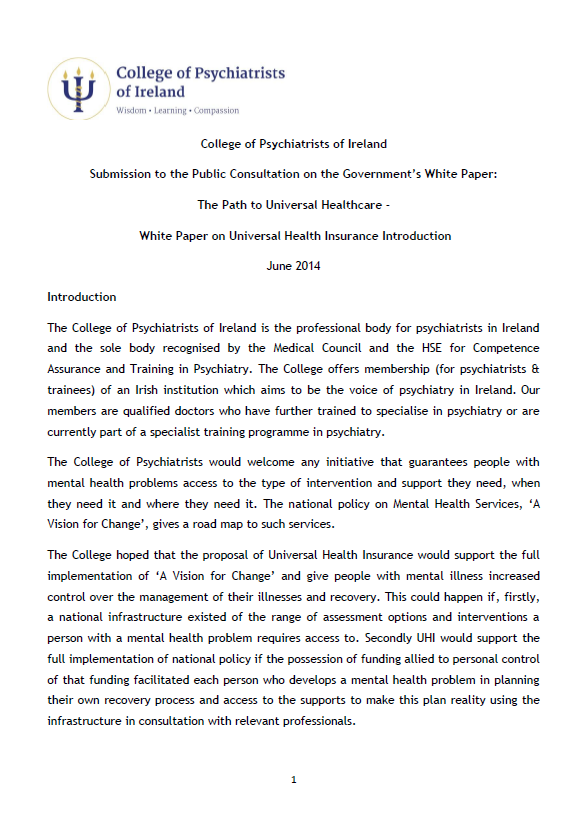The College of Psychiatrists would welcome any initiative that guarantees people with mental health problems access to the type of intervention and support they need, when they need it and where they need it. The national policy on Mental Health Services, ‘A Vision for Change’, gives a road map to such services.
The College hoped that the proposal of Universal Health Insurance would support the full implementation of ‘A Vision for Change’ and give people with mental illness increased control over the management of their illnesses and recovery. This could happen if, firstly, a national infrastructure existed of the range of assessment options and interventions a person with a mental health problem requires access to. Secondly UHI would support the full implementation of national policy if the possession of funding allied to personal control of that funding facilitated each person who develops a mental health problem in planning their own recovery process and access to the supports to make this plan reality using the infrastructure in consultation with relevant professionals.
In theory Universal Health Insurance and a Money Follows the Patient funding model should ensure this. However the College must reiterate its concern at the lack of progress on the full implementation of ‘A Vision for Change’ as is once again noted in reports by the Inspectorate of the Mental Health Commission. The College is also disappointed that our reading of the relevant documents reveals a disregard for the principal of Recovery in mental health services and the exclusion of people with mental health problems from ‘The Money Follows the Patient’ funding within current proposals. Beyond primary care the document does not seem to look, in any detail, beyond a hospital based system for secondary and tertiary interventions.

